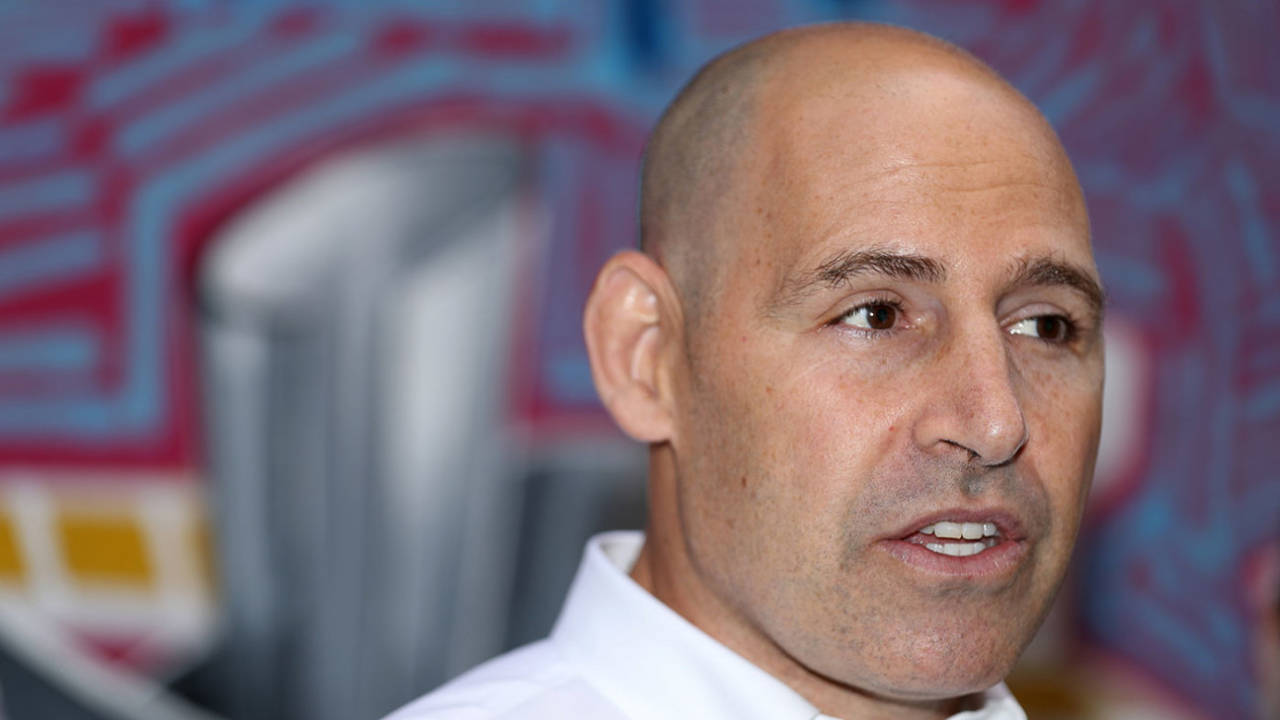Nick Hockley, Cricket Australia's interim chief executive, flies down from Sydney to Melbourne on Monday night with an in-person meeting to unify his executive team as the first of numerous priorities in the
wake of Kevin Roberts' exit last week.
A number of hurtful divisions have opened up in Australian cricket over recent weeks, none more so than the fact that the team pulled together by Roberts for CA to deal with the fallout from the Covid-19 pandemic did not include all the governing body's most senior management figures.
The vastly experienced trio of Belinda Clark (head of community cricket), Stephanie Beltrame (head of commercial) and Anthony Everard (head of events) were among the omitted executives, alongside the head of national teams Ben Oliver and the high performance chief Drew Ginn. Plans for mass staff stand downs on 20% of the original salaries were among those cooked up by a smaller group, leaving Hockley needing to build a more inclusive and united front among his own executives in addition to addressing fractures with the states and the players.
"I feel for everyone who's been through a really difficult time. I've been in this room [in his Sydney home] for three and a half months, I'm looking forward to getting out, getting back into the office and doing the work we love," Hockley told ESPNcricinfo. "Something my chief executive at the London Olympics, Paul Deighton, always used say 'all I'm asking of you, is to do the best work of your lives', and I've been given this responsibility and I'll be just doing everything to the best of my ability to do the role.
"Cricket's place in the fabric of Australian society and history is not lost on me, but we've got some pretty clear things we've got to get on with in the next few days and weeks."
Having worked on the wildly successful 2015 men's ODI World Cup and then as CEO for this year's pioneering women's T20 World Cup, culminating in a crowd of more than 86,000 at the MCG for the final on March 8 this year, Hockley is adamant that CA must be ambitious for the staging of a successful 2020-21 summer. He will draw inspiration from how, having set the lofty goal of getting more than 90,000 spectators to the decider, tournament organisers did not leave themselves wondering "what if".
"I hadn't actually watched back the TV coverage of it until very recently, and that was quite emotional because I know how much hard work's gone into that by so many people," Hockley said. "By nature I'm an optimistic pragmatist. You only get one shot at this life and you want to make the most of it and I try to take that into my work. There was a lot of discussion about 'what if you don't fill the stadium', but I think what would've been worse than that was if we'd never tried and we'd have always wondered."
In addition to Deighton's footprint on Hockley's career, he has been mentored in Australia by the 2015 World Cup chief executive and now CA director John Harnden, while the longtime former CA chief executive, James Sutherland, also sits on the T20 World Cup board. In acknowledging their influence on him, Hockley added that he also needed to be grateful for some of the advice he had received from Roberts over his time as a CA board director and executive prior to becoming CEO in October 2018.
"I do like the detail, but ultimately whether it's a one-off major event or administering a sport, you can't do anything on your own," Hockley said. "The support they provided on the board of the T20 World Cup to really think big and to back us in as an organising committee and be really bold and ambitious, they were an intrinsic part of that and it's really important to say that Kevin played a big role in that as well."
In terms of generating unity and morale among Australian cricket's many spheres of influence, Hockley recalled how at both the 50-over and T20 World Cups, staff from numerous individual organisations had married up successfully in the cause of staging big events. This summer, as much of the world looks to Australia for sport in general and cricket in particular, will provide a similar opportunity.
"On the T20 World Cup we ran a really lean local organising committee and that was only possible because we worked so closely with the states and territories," Hockley said. "I know what it feels like when everyone's all coming together. We were all just one team and delivering something fantastic. I'll certainly be trying to take that collaborative approach, that's my broad philosophy and approach and always has been."
Daniel Brettig is an assistant editor at ESPNcricinfo. @danbrettig
